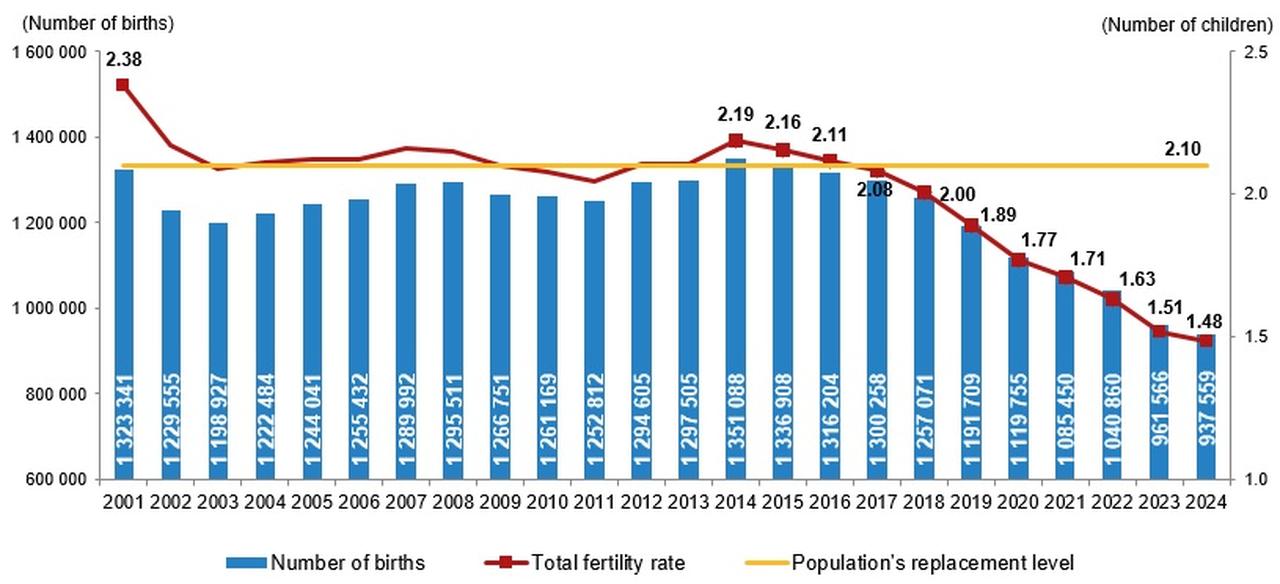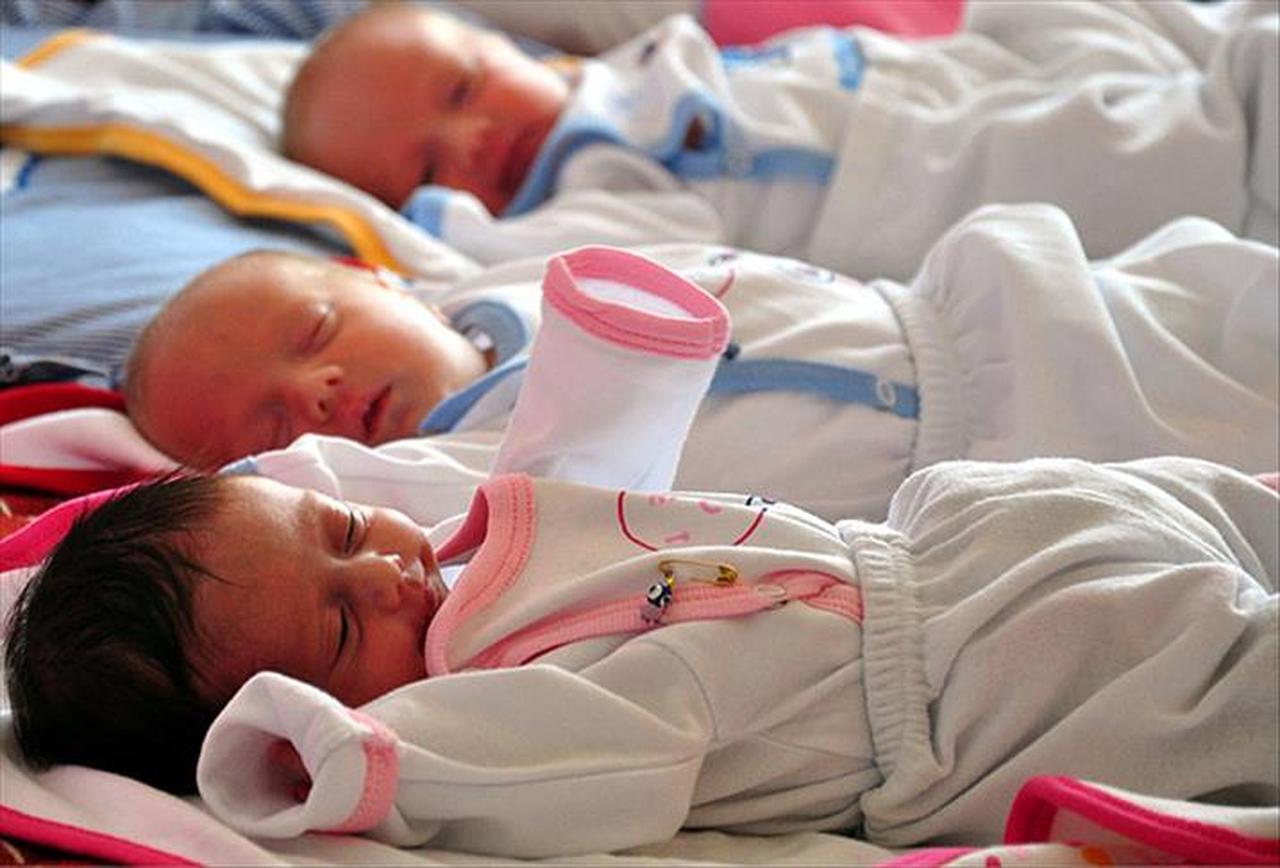
The number of live births in Türkiye fell to 937,000 in 2024, as the average number of children per woman declined to 1.48—well below the replacement level of 2.1, the Turkish Statistical Institute (TurkStat) reported on Tuesday.
The total fertility rate refers to the average number of children a woman is expected to have over her reproductive lifetime, defined as the 15–49 age group.
Compared with the EU average fertility rate of 1.38, Türkiye ranked 9th among member states and candidate countries. Among provinces, Sanliurfa had the highest fertility rate, while Bartin and Eskisehir recorded the lowest.

Fertility levels remain highest among women with limited formal education and lowest among university graduates. Rural areas continue to show higher fertility rates than urban centers, with densely populated cities seeing the sharpest declines.
The average age of mothers at the time of birth increased to 29.3 in 2024, compared to 26.7 in 2001. First-time mothers were on average 27.3 years old. Meanwhile, birth intervals between first and second children lengthened slightly, reaching an average of 4.7 years.
Multiple births accounted for 3.3% of all births last year, mostly twins. First-time births made up 42% of total deliveries, while 11.5% were fourth or later births.

Rising living costs, urbanization, changing gender roles, and a growing preference for delayed marriage and smaller families have all contributed to Türkiye’s steadily falling birth rate. In response to this alarming demographic trend, the Turkish government has declared 2025 the “Year of the Family.”
The campaign, announced earlier this year, aims to strengthen family structures and boost birth rates through a comprehensive set of policies and incentives.
Key components of the initiative include financial support for young couples, expanded maternity and paternity benefits, and new housing assistance programs tailored for families with children. The government also plans to improve access to affordable childcare services and extend parental leave entitlements.
Public awareness campaigns will accompany these measures, targeting social attitudes that contribute to fertility decline, particularly among urban and highly educated populations.